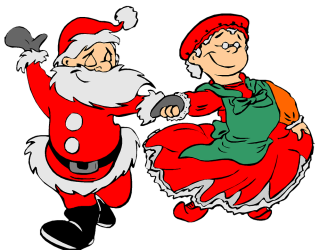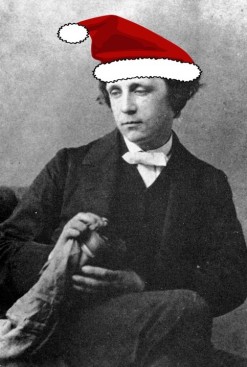I remember when I was a kid, I saw the words ‘XMAS SALE’ painted in huge letters on a shop window. I was only little at the time, and I didn’t know the word ‘Xmas’.
“What’s ‘xmas’?” I asked my nana as we trudged up the street, all wrapped up in coat, scarf, and gloves.
“It’s short for Christmas,” she told me. “But it’s not right, you shouldn’t use it.”
She went on to explain to me that the word ‘Christmas’ is short for ‘Christ’s Mass’, and that by replacing the word ‘Christ’ with an X is disrespectful to Jesus. The ‘x’ in ‘xmas’, she said, was an attempt to take away the real meaning, an attempt to commercialise the holiday, and to take Christ out of Christmas.
She was a smart cookie, my grandmother, and so I accepted what she said as fact. Even to this day (and despite my distinct lack of religious feeling), the pedant in me cringes a little when I see people declare, “MERRY XMAS!” I may not be religious, but if we’re going to hitch a ride on someone else’s festivities, we should at least be respectful of its meaning, right?
 My nana used to tell me that she knew everything there was to know about anything and I believed her, but now that I’m an adult, I can see that’s the sort of hyperbole grandparents (and even parents, for that matter) lavish on their wards. Not only did she not know everything, sometimes she got things wrong, as human beings are wont to do.
My nana used to tell me that she knew everything there was to know about anything and I believed her, but now that I’m an adult, I can see that’s the sort of hyperbole grandparents (and even parents, for that matter) lavish on their wards. Not only did she not know everything, sometimes she got things wrong, as human beings are wont to do.
So that got me wondering – was she right about this? Is ‘xmas’ really trying to take the Christ out of Christmas?
She was certainly right about one thing. The word ‘Christmas’ does indeed derive from ‘Christ’s Mass’, or Cristes mæsse in Old English, a phrase that was first recorded in 1038.
As an interesting aside, the term ‘Christenmas‘ (or ‘Christian’s Mass’) was also historically used, although it has fallen out of favour. I don’t know though, I kind of like the sound of it – although it may be difficult to fit into the songs.
Have yourself a merry little Christenmas…
Rockin’ around the Christenmas tree…
We wish you a merry Christenmas…
So when does the ‘x’ come into it?
Well actually, it’s nowhere near as modern as people assume and references to the shortened word can be found as far back as the 11th Century, where it was written ‘xpmas‘. Why ‘xp’? Perhaps because it saved space on expensive parchment paper, or more likely because it looks like the Christian symbol, the labarum (or chi-rho, the first two Greek letters in Christ’s name).

As time went on, the p was dropped and ‘xmas’ entered the everyday language of the everyday population.
By 1551, people were celebrating X’temmas, and later xmas. Even the poet Samuel Taylor Coleridge wrote “on Xmas Day…” in 1801, and Lewis Carroll used it later in 1864 (and if it’s good enough for Coleridge and Carroll, who are we to argue?)

It actually comes from the Greek version of the word ‘Christ’ (Χριστός) – the ‘x’ (or chi, pronounced ‘kai’) being the first letter of the word ‘Christ’, in the same way that the xp of the labarum do. So the ‘x’ is, in fact, just as much a representation of the Christ in Christmas as the word ‘Christ’ itself, although it should still be pronounced ‘Christmas’ and not ‘ex-mas’ regardless of how it is written.
So is the ‘x’ in ‘xmas’ disrespectful? Not necessarily. Of course, like all things, the intent behind what is said and done will alter the eventual meaning, but for the most part, when people declare ‘merry Xmas’, they are simply using an old, common, and shorter derivative of an old, common, longer word.
Sorry nan, you were wrong about this one!